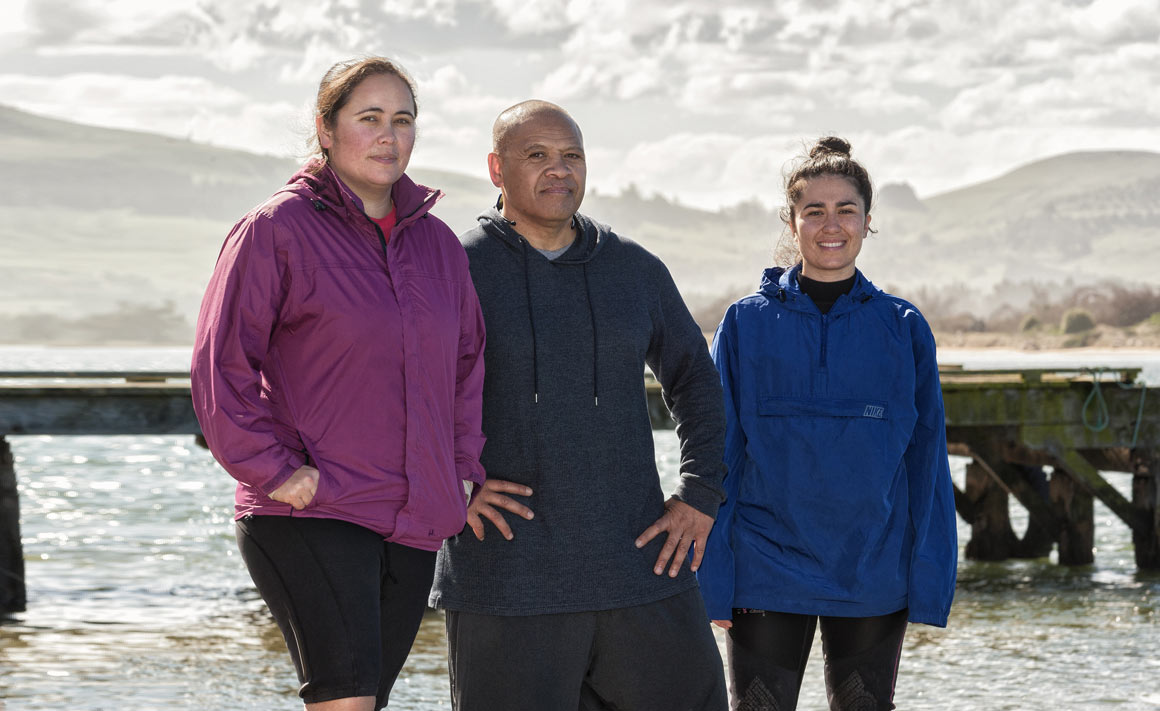 Monday 8 January 2018 11:03am
Monday 8 January 2018 11:03am
This Sustainable Seas National Science Challenge project examines kaitiakitanga of the marine environment and its implications for resource management today.
A year long research project is helping develop a wider understanding of mātauranga Māori (Māori knowledge) and how it applies to local marine environment management.
The Māori project, Hui-te-ananui: Understanding Kaitiakitanga in our Marine Environment, is part of the Sustainable Seas National Science Challenge and is particularly focused on kaitiakitanga as a “place-based” body of knowledge and practice.
Project leader Dr Anne-Marie Jackson (Physical Education) who, together with Dr Hauiti Hakopa (Physical Education) is a co-director of Otago's Te Koronga Indigenous Science Research Theme, says kaitiakitanga is often described as guardianship, but the meaning is richer than that.
"It comes from the word 'tiaki', which means to guard and preserve, to shelter, nurture and to support. I guess that's the hard thing when things are translated – some of the depth of meaning gets missed.
"Usually what's missing is an understanding of spiritual guardianship.
"It's not just physical guardianship of a resource – or, for us, the marine environment – but it's guardianship of the spiritual realm as well."
To expand their understanding of what it means, they have been examining archival material related to Māori understanding and knowledge of the marine environment.
"We've focused a lot on the Hocken here in Dunedin, which is a great resource, and at the Alexander Turnbull Library in the National Library. Our research fellow Ngahuia Mita has also hunted through other smaller archives as well."
Although Māori traditions had, until the 1800s, been passed down orally, from that time a tremendous amount has been written down. Jackson says they also looked at chants, proverbs, prayers and traditional stories, and thematically analysed them to see what values and ideas emerged.
"We've really only scratched the surface of what's there. We looked at a number of different tribal creation narratives where we can trace our human descendants back through genealogical links to our gods, including our god of the ocean, Tangaroa – or in the southern dialect, Takaroa."
In the second part of the research they examined Waitangi Tribunal reports, in particular, looking at what kaitiakitanga is today and the impact it has.
"Guardianship is not just about our spiritual values, but also the practical implementation of that."
Practical examples of traditional Māori knowledge include rahui or closures – something allowed under the Fisheries Act. Some see it as primarily practical enforcement of a restriction, whereas others see it as both practical and spiritual.
Each tribe and sub-tribe – iwi and hapū – have their own specific ways of how they manage their different resources, as well as the environment too, Jackson explains.
"Conditions are different, and their traditions and stories and tikanga – or protocols – are different too. That's part of what we've been able to highlight and understand how local-scale management is important, rather than trying to manage fisheries on a global scale.
"Up until now there hasn't been one comprehensive piece of work that brings together the mātauranga element – our traditional stories and prayers etc. – as well as looking at it today by analysing current literature and reports all together in one document that's focusing specifically on the marine environment."
Jackson says now the archival work is done they are really keen to engage with communities to see how they are drawing on their stories and traditions to shape the way they manage their resources and environment in a modern context.
"There's a huge number of very knowledgeable and experienced people who manage their little slices of paradise throughout New Zealand."
Funding
- Sustainable Seas National Science Challenge – MBIE
- University of Otago Research Committee
- University of Otago Division of Sciences
- University of Otago School of Physical Education, Sport and Exercise Sciences